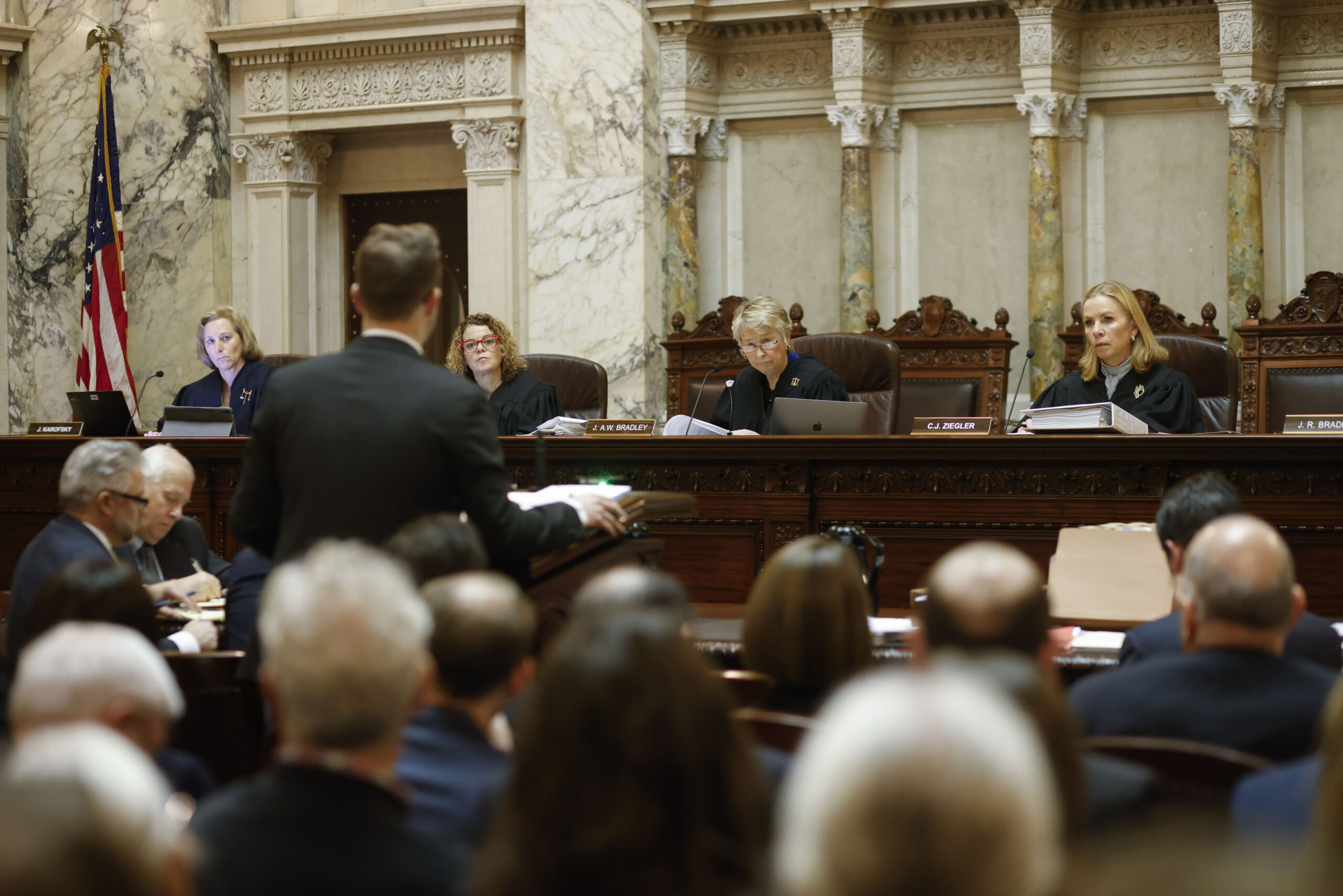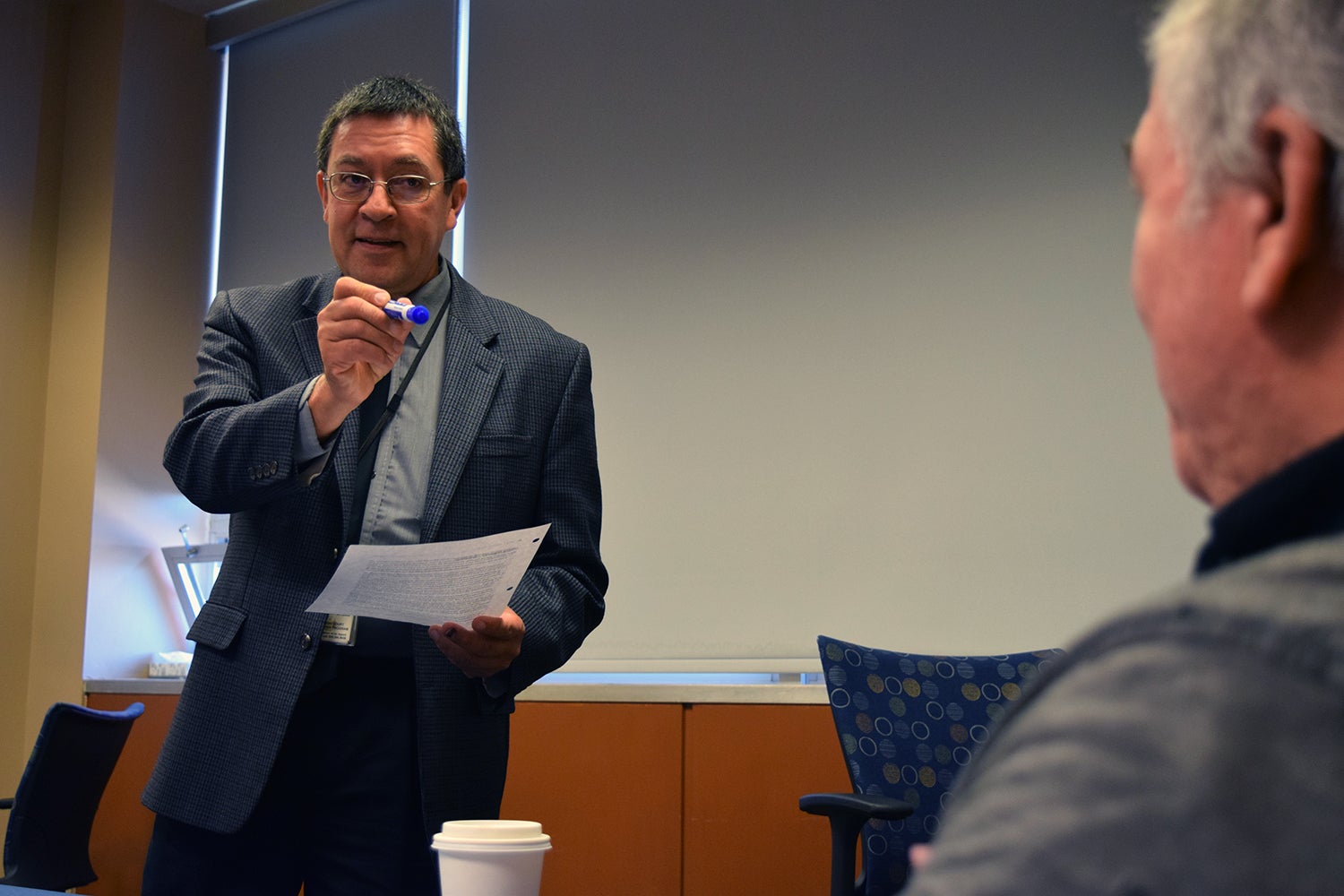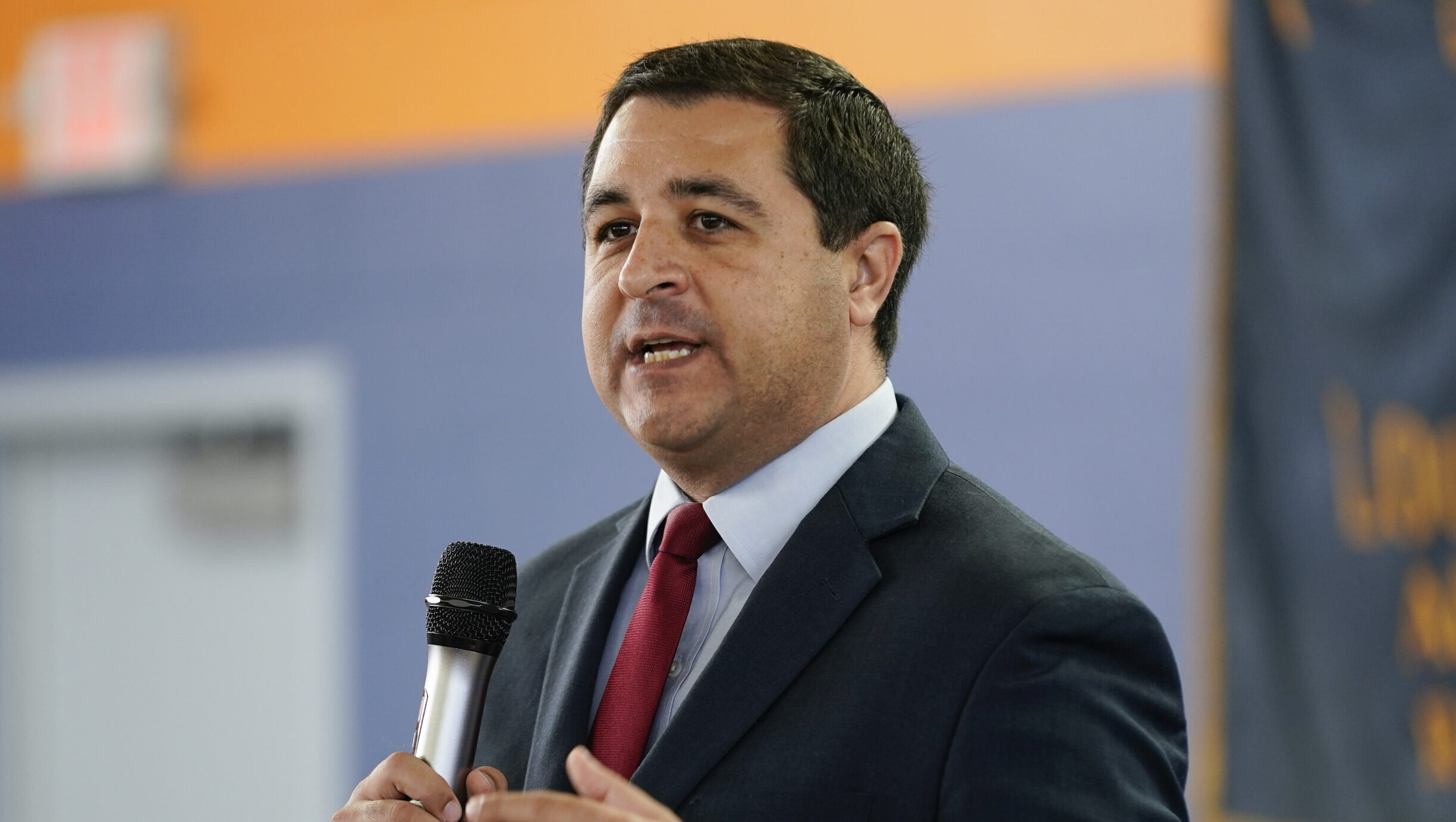The Wisconsin Supreme Court is poised to reject a proposal that would have required municipal courts to appoint interpreters for people with limited understanding of English.
Justices agreed to hold a public hearing on a petition filed by a legal advocacy group called Wisconsin Justice Initiative. But during that hearing, justices questioned the costs and practicality of that proposal in a state that’s already grappling with a shortage of court interpreters.
“We have a crisis right now in the state when it comes to interpreters,” Justice Jill Karofsky said during the hearing. “We live in a world of limited resources. And the problem I see with this petition is just almost complete and total failure to appreciate that.”
Stay informed on the latest news
Sign up for WPR’s email newsletter.
Under Wisconsin law, circuit and appellate courts in Wisconsin are required to appoint and pay for interpreters for non-English speakers who appear before those courts.
But in most cases, that requirement doesn’t apply to the more than 200 municipal courts across Wisconsin that handle civil cases like traffic offenses and local ordinance violations.
Instead, people before those local courts often rely on cobbled-together solutions, like pulling up Google Translate or asking a friend or family member to interpret.
Municipal courts don’t impose criminal penalties, but advocate says stakes are still high
That’s despite the fact the stakes in municipal court can be high, said Parker White, an attorney who represented the Wisconsin Justice Initiative during the Supreme Court rules hearing.
Municipal courts don’t impose criminal penalties, but they can impose fines. In some cases, unpaid fines can lead to arrests and jail time.
“Municipal courts are real courts and they have real consequences for real people,” White said. “There are real fines that defendants in municipal courts have to pay. If they don’t pay them, their driver’s license can be suspended. They can go to jail.”
Currently, Wisconsin’s municipal courts are only required to provide interpreters for children who can’t afford them. That leaves adults with limited English proficiency in “unacceptable” situations and compromises their due process rights, White argued.
The Wisconsin Justice Initiative petition calls for amending state law to require municipal court interpreters for all adults with limited English proficiency, similar to mandates already in place for Wisconsin’s appellate and circuit courts.
Under the proposal, courts could use a range of translation options during “non-evidentiary” hearings, such as initial appearances. That includes using an interpreter service over video, phone or the computer, Wisconsin Justice Initiative representatives said.
During “evidentiary” hearings that are likely to require oral testimony from a witness, the courts would need to appoint an actual person who’s a “qualified interpreter.”
White said expenses should be relatively minimal since the vast majority of cases before municipal courts don’t involve testimony.
But the petition doesn’t include a cost estimate of the changes. Audrey Skwierawski, who directs Wisconsin’s state courts, said that’s concerning.
“It’s like throwing a stone in a pond and there will be ripple effects,” Skwierawski said. “I don’t know right now the size of the stone, I don’t know the size of the pond, and I don’t know the size of the ripples.”
Municipalities are not required to operate municipal courts, and some local judges say they’re worried towns and cities will choose to shut down those courts if the new rules takes effect.
Under Wisconsin law, municipal courts are required to pay interpreters at least $10 for half a day, but most communities pay much more than that sub-minimum wage rate. In 2023, Spanish interpreters charged circuit courts across Wisconsin an average of $70 an hour, while Hmong and Arabic interpreters charged closer to $90 an hour, according to a letter submitted by the state courts director.

Approach to interpreters varies in municipal courts across the state
Wisconsin’s Municipal Judges Association urged the high court to reject the petition, and instead suggested the state Legislature should come up with a solution that includes funding.
“One size does not fit,” said Pleasant Prairie Municipal Judge Richard Ginkowski, former president of the Wisconsin Municipal Judges Association. “What we need is flexibility and what we need is funding.”
Across the state, municipal courts vary widely in how they use interpreters.
The Wisconsin Justice Initiative surveyed the more than 200 municipal judges in Wisconsin, and got a response from just over 20 percent of them.
During hearings that involve testimony, those judges said their most common approach to communicating with non-English speakers was using an audio or video translation service, such as the on-demand translation service known as LanguageLine.
During initial appearances, however, judges said they most commonly asked the defendant to bring a family member or friend to translate.
Attorney Nancy Cruz told the justices that, when she was growing up, she often translated for her parents during appointments and other official matters.
It’s less than ideal, she said, to put the burden of translation on a child who has no legal training. Cruz leads the Wisconsin Hispanic Lawyers Association, which is among the groups that supported the petition.
“We believe that litigants should not have to rely on friends or family members for translation services when their legal rights are at stake,” Cruz told the high court.
Justices plan to release order rejecting proposal
During an open rules conference in December, all of the court’s seven justices agreed to draft an order rejecting the proposal. Justices emphasized, however, that they consider access to interpreters to be a crucial issue.
A four-member majority on the court said they planned to ask Wisconsin’s Judicial Council to study the issue further.
Justices clarified, however, that their message to the commission should be framed as a request instead of an order, since the Wisconsin Judicial Council doesn’t have any funding for research staff.
Wisconsin Public Radio, © Copyright 2025, Board of Regents of the University of Wisconsin System and Wisconsin Educational Communications Board.




